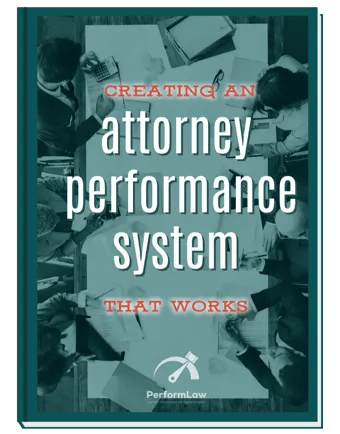Firms willing to invest time and effort into the hiring process are better able to find and hire the best attorneys. Specifically, law firms developing a role-specific recruiting process are more likely to consider only high-quality candidates in the hiring process. On the contrary, firms that typically hire based on likability and broad academic measurements are prone to a weakened law firm hiring system.
Hiring law firm associates based on suitability for a defined role requires the following process elements:
- Understanding of available roles;
- Model associate criteria;
- Client preferences; and
- Informed interviewing process.
Role Definition
The first step in developing a hiring strategy is to seriously contemplate the attributes required to succeed in an available role. Roles are best developed with both partner and associate input.
Partners should consider internal factors (chemistry, partner work habits, and style) along with how a particular role impacts client service. Since associates know the daily realities of the job, associate input is also vital to the role definition process. Additionally, the inclusion of existing associates in the hiring process supports good morale and an increased willingness to train new lawyers.
It is important to remember that many associate candidates are just glad to have a chance at a paying job. Even if they are better suited for another role, their income need will force them to try to be what the position requires. This is why it is important for firms to define roles as specifically and realistically as possible.
Model associate criteria
Creating a model that lists the attributes of successful associates is a valuable tool for selecting new hires. Personality, law school, grades, and prior work experience are often the criteria applied to hiring new associates. Firms that carefully consider the attributes of existing successful associates are better prepared to choose candidates.
For example, let’s assume that a firm measured several data points related to existing associates in similar roles. The model associate criteria might look as follows:
SAMPLE: LAW FIRM MODEL ASSOCIATE CRITERIA
|
Attribute |
Most Preferred |
Workable |
Unworkable |
|
Law school |
School 1 |
School 2 |
School 3 |
|
Class rank |
Top 25% |
Top 40% |
Bottom 25% |
|
Prior experience |
Banking/Finance |
Accounting |
No business |
|
Undergrad degree |
Finance/Econ/Accounting |
Gen business |
Liberal Arts |
|
Personality |
Adaptable |
Adapt with effort |
Rigid |
|
Work hour flexibility |
High |
With notice |
Strict schedule |
|
Tolerance for complexity |
High |
Above average |
Average/Below |
|
Tolerance for ambiguity |
High |
High with effort |
Low |
|
Writing skills |
Technical |
Creative |
Weak |
|
Communication skills |
Strong Verbal and Written |
Strong Written |
Weak |
|
Feedback need |
Low |
Medium |
High |
There are several other data points that could be measured and some of these could be eliminated. Firms that do not have enough data to form a model would still benefit from the exercise of considering the ideal attributes of the contemplated position.
Finally, this type of analysis is beneficial when searching for macro clues to existing associate performance. If a firm is happy with attorney performance at the firm, it may be possible to discover less obvious traits within the existing staff. The reverse may also be true for poor performing associate groups.
Client-specific criteria
Private law firm clients generally do not tell law firms who to hire. Clients do, at times, recommend broad hiring preferences to law firms. For example, some clients have diversity requirements in their retention agreements with law firms. Bilingual-speaking team members are often an advantage. Finally, some clients simply will not pay for first-year lawyers. To the extent that a firm is able to identify client preferences, assuming they are not discriminatory, they should be taken into account when considering new hires.
Informed interviewing process
Having a clear understanding of the available roles and corresponding model associate criteria, firms are capable of developing a more informed interviewing process. Whether partners are responsible for identifying and vetting their hires, or it is a hiring partner or committee performing these duties, the process is much the same.
Hiring committees/partners having the benefit of role-specific model associate criteria will have more law firm recruiting effectiveness. Each phase of the attorney hiring process from the initial job posting, to resume evaluation, to interviewing and selection will be enhanced by an informed approach.
Define the role. Then make the hire.
Download this FREE Associate Performance System eBook for your firm. The book reviews the components of an effective attorney performance system and how to make it a reality at your firm.
Click on the image above to download.
.webp?width=124&height=108&name=PerformLaw_Logo_Experts3%20(1).webp)


